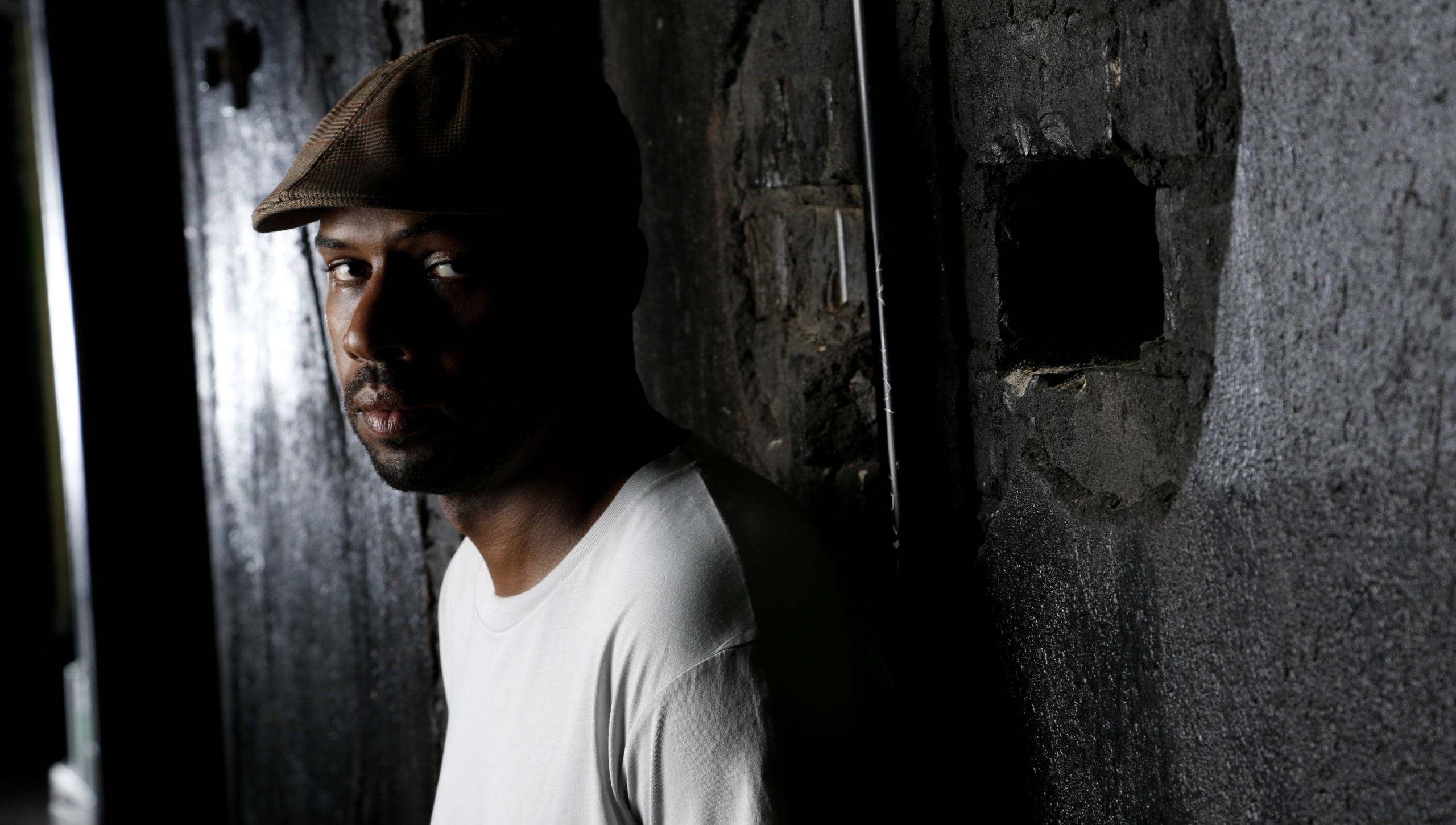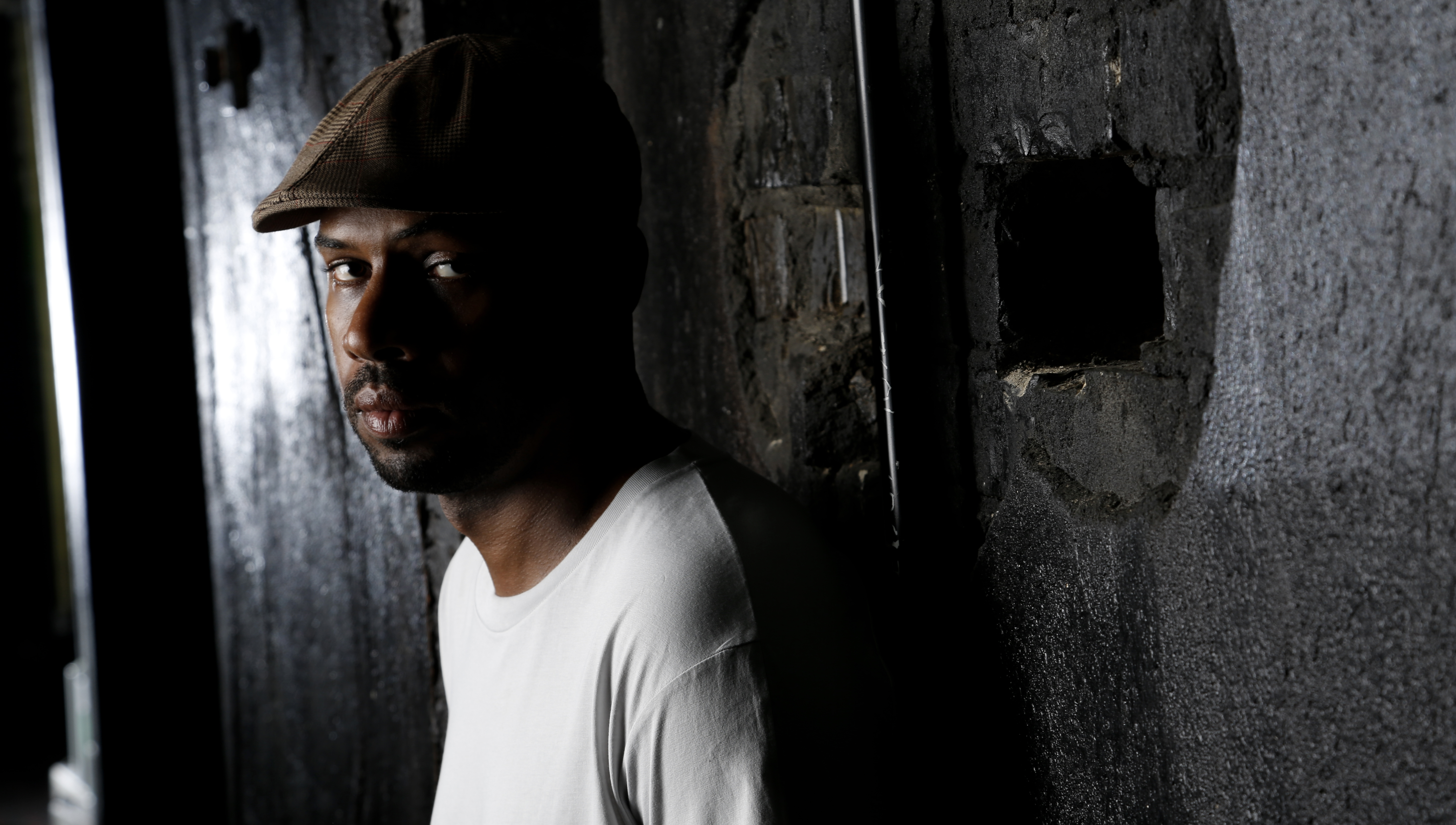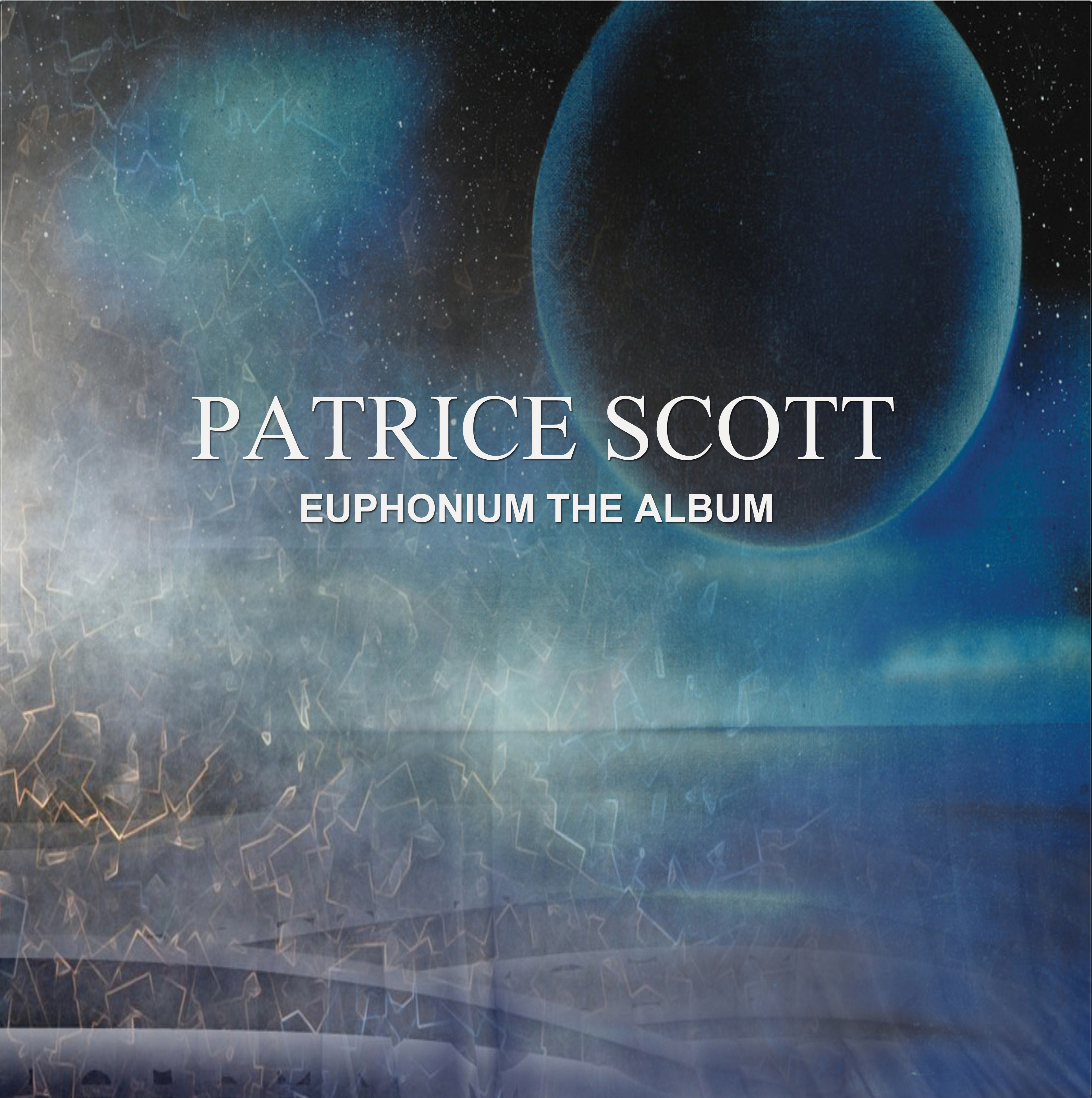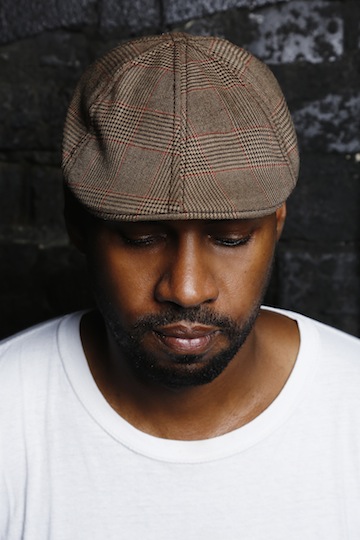Q&A: Patrice Scott
With the new 'Euphonium,' the Sistrum head solidifies his standing as one of Detroit's premier producers.

Q&A: Patrice Scott
With the new 'Euphonium,' the Sistrum head solidifies his standing as one of Detroit's premier producers.

Patrice Scott has a history within Detroit’s clubbing world—a really long history: As a youth, the DJ and producer, who’s about to release his long-awaited LP, Euphonium on was going out to the kinds of parties that eventually gave rise to the city’s seminal techno scene. “Well, I don’t know if you could really call it going out—I was only 11 years old!,” he recalls with a laugh. “This would have been around ’83 or ’84. Here’s the story: My grandmother lived down the street from where these guys, this DJ group called Direct Drive, were DJing a party for the Sharevari crew. It was in the summertime, and the party was outside in a back yard. Me and some friends walked down the street to this back yard. One of my friend’s older brother was actually in Direct Drive, and they let us hang out, and we were just listening to the DJs. I was like, wow—this is what I want to do! I mean, we had been hearing people like the Electrifying Mojo on the radio, but this was something else. And that’s really how it all got started. I didn’t even have an interest in producing. I just wanted to play music.”
The urge to produce finally came to him in the late ’90s, but Scott didn’t put out his first release until years later, when he kicked off his Sistrum label in 2006 with the Atmospheric Emotions EP. From the start, Scott’s musical ethos was apparent, and the EP’s name pretty much summed it up: His is a deep, soulful, techno-tinged brand of deep house that walks the line between subtlety and intensity, and owes as much to the otherworldly, hypnotic sound of Chicago’s Larry Heard as it does to the fathers of Detroit techno. He’s been perfecting that template ever since—and with the release of Euphonium, his debut long-player—Scott is poised to enter the top tier of Detroit producers.
This album has been gestating for quite a while, right? Wasn’t it originally supposed to come out late last year?
That was the original plan, but I just didn’t have things together. I wasn’t done, really. I kept changing my mind about what I wanted to do with it. I’d make a track, and one day I would think was good, and then the next day I wouldn’t like it. Finally, around November, I though, man, you gotta stop playing. I really started focusing. I had some of the tracks already done, but did about five out of the album’s nine tracks between November and January.

You went into hard-core work mode.
I was working on it between gigs. I was not getting a lot of sleep in that period. I would stay up all night till six or seven in the morning, and then I’d be up again at 11, turning equipment back on—I was in a groove, and I was feeling it. And I’m not like that. [laughs] I mean, I’ll go through spurts, but I’ve never worked like this before, just staying at it. But I had ideas and was feeling good about what was happening, so I figured that I just better continue.
Well, it is your debut album—you want it to be good, and if lack of sleep is the price to pay, so be it.
Absolutely. But honestly, the hardest thing was that I was trying to gear it toward the dancefloor. I mean, people can play my stuff in clubs, but they’re not always dancefloor bangers. And I’m saying that everything on Euphonium is a dancefloor banger, either—but some of the tracks are more that way than my previous work is. And if this album does okay, I’m going to focus more on making albums, maybe one every two years.
You’re already making plans for the next one?
Well, I wouldn’t say I have any specific plans, and I’m still going to be making twelves. But with an album, you can express yourself more—and there’s a lot of stuff I wanted to express with this one, but I didn’t. I’ll save that for the next one, which will probably be a little more experimental.
Why did you title the album Euphonium? I know that’s a musical instrument, kind of like a tuba—but don’t hear any tubas on the album.
I’m always searching for different names—a word that really means something. And yeah, a euphonium is a musical instrument, but the word actually means “good sound,” and that’s what stuck with me. But really, I used that name for the 12-inch [sampler] I had put out last year, so I kind of had to stick with that name—otherwise, I might have changed it! [laughs]
Do you find it difficult to come up with titles for your music?
It is difficult to come up with something different. But it’s not just titles. With this kind of music, everything’s been done over and over, even the music itself. With all the music I hear, there might be some great stuff, but a lot of sound like stuff I already have. It’s hard to be different.
You’ve actually been quoted as saying that, in regards to deep house and techno, “the best music of this genre came out in the 90′s.”
I think that’s true—unless somebody out there has some great ideas I don’t know about.
You released an EP titled Nostalgia a few years back. Was that a reference to the fact that a lot of house and techno refers back to the music’s past?
Yeah, exactly. There are still a lot of people making great music, of course. But a lot of it, when I hear it, it’s kind of like hearing it again, even though I’m listening to it for the first time.
The lead track on Euphonium is called “A Detroit State Of Mind.” How would you define that state of mind?
Well, I’ll tell you—the strings on that track are from another track that I made yeas ago, but was never released. One day, I was listening to it, and thought, hmm, I should do something with this. So I took those strings, which to me represent the people in Detroit who are facing economically hard times. They’re kind of depressing strings, really. Then those percussion-type sounds represent the people who are working in the auto factory—hard at work on machines in the Motor City, building stuff. So that’s why I titled that one like I did.
So it’s a pretty specific, literal title.
Yeah, but I didn’t come up with the title until well after I made the track. I never sit down and think, oh, I’m going to make a track that sound like this or sounds like that. There’s always a lot of trial and error. To name them, I’ll just listen to them for a while, and ask myself what it is that the track represents to me.
“What you hear is what I feel. And I try to have that attitude with other artists who release on Sistrum; I want them to do their own thing.”
Like a lot of your music, Euphonium strikes me as an uncompromising collection of songs—not in that it’s particularly hard, but its more a case of that it sounds like it’s the kind of music that you really want to make, without worrying about trends or other outside factors.
That’s 100 percent correct, and that’s the way I’ve always done it. That’s why I started Sistrum—I wanted to do things the way I wanted to do them. When I was shopping around the first release I had come out—I’m not going to name any names, but it was people running Detroit record labels—and they were all telling me that I needed to do this different and do that different. I kept thinking that I liked it the way it was! That’s when I thought, okay, I’m going to have to start my own label so I express myself the way I want to. What you hear is what I feel. And I try to have that attitude with other artists who release on Sistrum; I want them to do their own thing. Either I’ll like it and put it out, or I don’t like it and I won’t put it out. I don’t try to get too involved in someone else’s creativity.

Your music seems very soulful and emotive, although the emotions are expressed in a somewhat abstract way. Is that something you strive for, or does it just come naturally to you?
I think it’s a little bit of both. But wherever it comes from, I’ve got to have lots of feeling in my music, and it’s the same way with my DJ sets. I might drop some tracks in my set that are maybe kind of minimal, but you’ll never hear a whole set like that. I just call it music—solid music, something with rhythms and tones and pads and whatever. I mean, there are guys who can make tracks where there’s not much going on within them at all, and I’ll love them. I’ve even made tracks like that, most of which have never seen the light of day. But it’s hard to convey much feeling with that kind of music.
Your material sometimes boasts an otherworldly quality as well, and it seems like you go for a outer-space vibe in the artwork for a lot of Sistrum’s releases, including the new album.
That’s by Michael Zucker, who’s the guy who runs the Finale Sessions label. He started doing our labels since around Sistrum’s 17th release. I’ll just send him the music and kind of tell him what I want, and sometimes he’ll come back with something totally different! Other times, it’s right on the nose. But whatever the case, we always end up with something I like. With Euphonium…yeah, the music is kind of spacey, so that’s what we were aiming for.
We mentioned that a euphonium is a kind of musical instrument, but your label is also name for an instrument as well, isn’t it?
A sistrum is an ancient kind of shaker. Like I said, I had started the label because I wanted to control my own music, and I wanted a name that meant something. One of my best friends, a very intelligent guy, gave me five different names to choose from. I can’t even remember the rest, but sistrum just grabbed me.
Sistrum has been around for almost a decade. Has it been a struggle to keep it going for that long?
It’s really been up and down. In the beginning, it was definitely a struggle—but it seemed like a lot of people were getting back into deep house around then, which helped. A lot of guys, people like Jus-Ed, Omar-S, DJ Qu and all those guys, were renewing interest in the sound. But yeah, it’s been a struggle. Some records that I expect to sell a lot of…I don’t. [laughs] And the ones that I don’t think will sell end up doing well. One difficulty is that there is so much music coming out every week. Back in the ’90s, the shelf life of a record could be six months. You would go into the store, see that a record had sold out back on the shelf again; the store would just keep getting more of them. Now, since there are so many records and so much competition, that hardly ever happens. Stores will only buy four or five copies, and when they’re gone, they’re gone—there are a whole slew of new records in their place.
But Sistrum is still here, which says something.
Yeah. I kind of think of records as business cards, basically to tell people that this is what I do.
I still buy vinyl myself, and always use vinyl when I play. I don’t even carry CDs. I’m just old-fashioned.
The label has a commitment to vinyl—which probably has a bit more staying power than digital releases, right?
Absolutely. I’ll do some digital, but it’s definitely not my focus. I basically just do it just because whenever you put something out, some torrent site will stick it up for free downloading anyway. But I still buy vinyl myself, and always use vinyl when I play. I don’t even carry CDs. I’m just old-fashioned. I’ll take about 60 or 70 records with me to every gig, which is enough to do a good three-hour set.
Will you be spinning a lot in the upcoming months to support the album?
Yeah—I play as much as I can, anyway. I’ve played every weekend since the beginning of January. My first free weekend won’t be until the beginning of May. Hopefully with the album coming out, things will continue the way they have been—which will be enough to make me a happy man. You know, I’ve been around this scene for such a long time, and I feel like I’m a part of it. I know I’m not one of the innovators like Juan or Derrick—but I’ve seen all that, and I know all that. And I want to be a part of that history.

